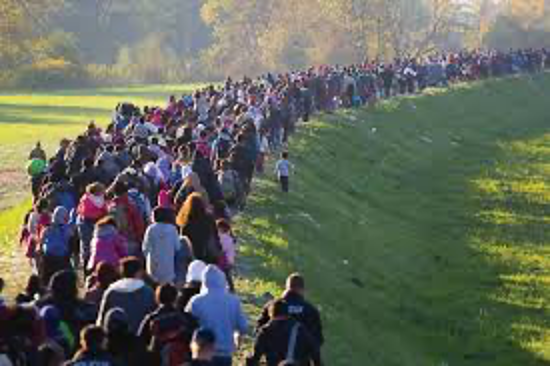
- Module Supervisor: Owen Robinson

This module will provide students with a thorough understanding of the relevant contexts of Refugee Care (as a theoretical and applied field). Refugee Care has not been a subject at post-graduate academic level and this module aims to contribute modestly to this development by creating a coherent framework within which Refugee Care can be located meaningfully. This module complements the 'Therapeutic Care for Refugees' module in so far as it will assist students develop a thorough understanding of the (inter-)relationship between Therapeutic Care with other academic disciplines.
Learning Outcomes
On satisfactory completion of this module students are expected to be able to:
Demonstrate an understanding of the multidisciplinary nature of Refugee Care.
Demonstrate an ability to approach Refugee Care from wider academic perspectives which include specific insights that enrich the comprehension of key terms and processes in this field (e.g. hospitality, otherness, gender, culture, care).
Demonstrate an understanding of relevant parameters of Refugee Care (e.g. economic, historical, legal)

Learning Outcomes:
By the end of the module you should be able to:
Become familiar with the overall issues, debates and literature on the Psychosocial perspective of Human Rights
Develop a systematic understanding of the 'victim, perpetrator, saviour' triangle
Acquire a working knowledge of the epistemological issues concerning the interaction between intrapsychic, interpersonal and socio-political realms
Syllabus
1. Human rights and psychological considerations: defining the field of the psychosocial phenomena; epistemologies of combining the intrapsychic, interpersonal and socio-political realms; the spectrum of relevant methodologies.
Lecturers: Andrew Fagan and Renos Papadopoulos
2. Identity, identification and group identities: gender, ethnicity politics, religion, culture; essentialist and constructivist perspectives; the psychosocial dynamics of purity and genocide.
Lecturer: John Packer
3. Difference, conflict and violence: otherness, marginalisation and the psychosocial dynamics of conflict escalation; intrapsychic, interpersonal and socio-political dimensions.
Lecturer: Renos Papadopoulos
4. The psychological dynamics of the Victim triangle (Perpetrator - Victim - Rescuer): focus on the Perpetrator: essentialist and constructivist perspectives; the making of a human rights violator; intrapsychic, interpersonal and socio-political dimensions
Lecturer: Renos Papadopoulos (or Ana Ljubinkovic)
5. Focus on the Victim: essentialist and constructivist perspectives; the making of a Victim (debates in Victimology); intrapsychic, interpersonal and socio-political dimensions
Lecturer: Renos Papadopoulos (or Ana Ljubinkovic)
6. Focus on the Rescuer: essentialist and constructivist perspectives; the making of a Rescuer; intrapsychic, interpersonal and socio-political dimensions
Lecturer: Renos Papadopoulos (or Ana Ljubinkovic)
7. Compliance to authority: classic and current perspectives to this debate. Implications for Human Rights.
Lecturers: Andrew Fagan
8. Psychological trauma; individual and group trauma; trauma theories and implications; classic and current debates; Post Traumatic Stress Disorder, Resilience and Adversity-Activated Development.
Lecturers: Renos Papadopoulos (or Ana Ljubinkovic)
9. Approaches to conflict resolution: the range of approaches with particular emphasis to the constituent psychosocial dimensions
Lecturers: John Packer and Renos Papadopoulos
10. An overview (revisiting and focusing on anything else of relevance).
Lecturers: Andrew Fagan and Renos Papadopoulos
